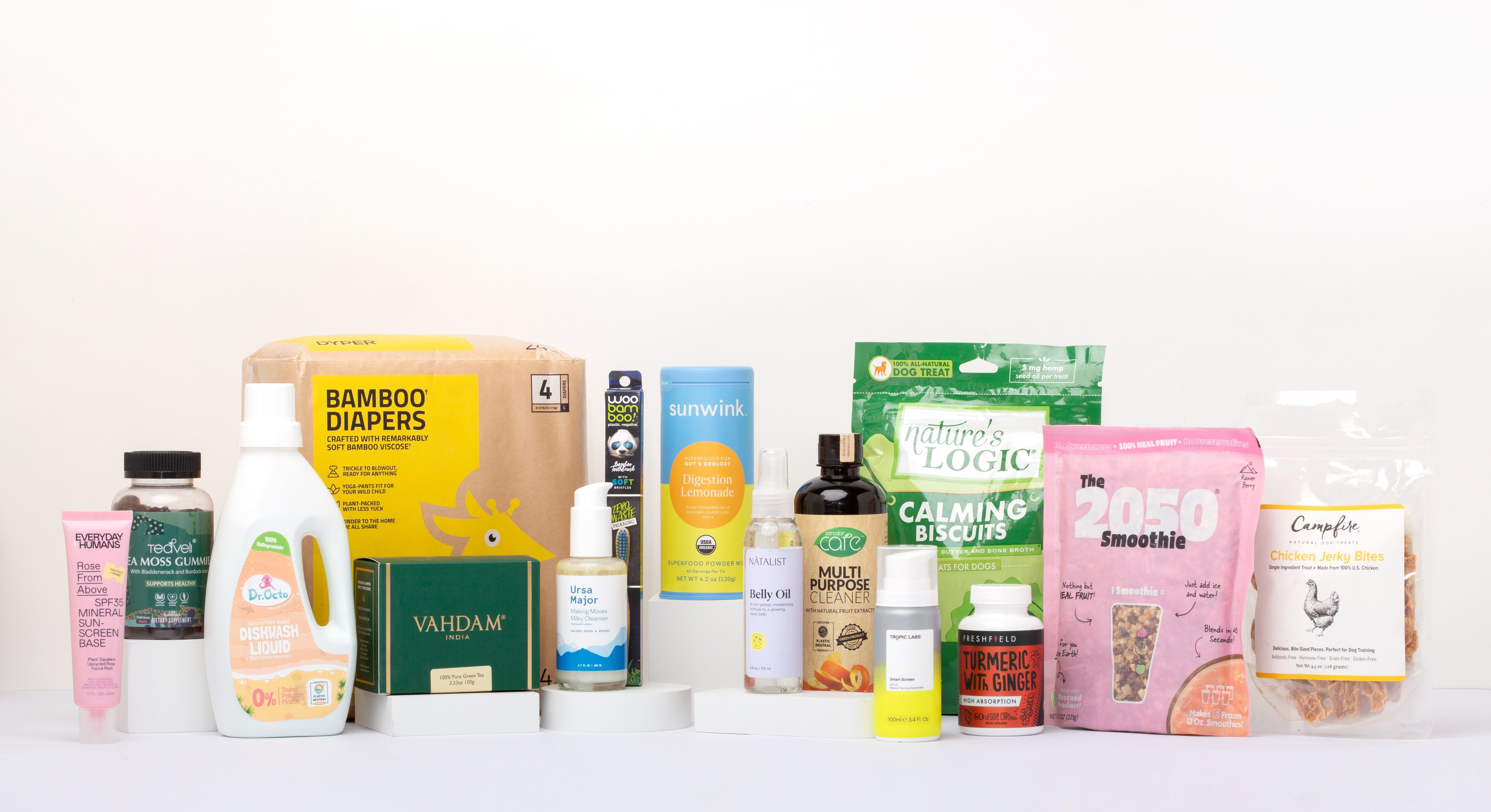5 Simple Tips for a Zero Waste Christmas
‘Tis the season to protect the planet! Follow this handy set of tips and tricks to celebrate a zero-waste Christmas this year.
‘Tis the season to protect the planet! Follow this handy set of tips and tricks to celebrate a zero waste Christmas this year!
1. Christmas Trees:

Most Christmas trees contribute to our waste because they aren’t composted once the holiday season is done. A simple solution would be to pick your tree from a local participating tree supplier who will deliver it to your door for Christmas! Once the festivities are over, they’ll return to pick it up and replant it at the farm. You can even continue to rent the same tree year after year.
2. Gift Wrapping:

A lesser known fact is that most wrapping paper isn’t recyclable. Moreover, after tearing through all of it, it’s probably not reusable either. In order to prevent this, stick to gift wrapping that can be used over and over like holiday bags and tissue paper or the beautiful cloth alternatives. Or you could also go for a double gift and make the wrapping part of the present. There’s also a Japanese art of wrapping gifts with cloth that could come in handy this Christmas!
3. Christmas Decorations:

Your decorations are another major contributor to the plastics waste generated over holiday seasons – attempt to cut down on them as much as you can. If not, natural decorations are plastic-free and biodegradable. And remember, the more local the better. If you can forage your own, excellent; alternatively go to a florist and find out what is in season where you live. You can also bake your own decorations! This makes them more personal than the mass produced alternatives sold in your localities.
4. Food:

A major portion of food goes to waste during the holiday season. We tend to overestimate the quantity of food we need and end up wasting a majority of it. This time around, make sure to repurpose your leftovers – or better yet, measure how much food your party requires before your purchase! Choose home cooked meals over store-bought food to also cut down on the additional packaging waste.
5. Gifting:

When gifting your loved ones this Christmas, keep the planet in mind! If you can, gift them home-made so you’re aware of all the materials going into your final product. It’s easier to cut back on plastics and other toxic materials that might harm the planet. Not to mention, crafting your own gifts adds a special, personal touch that store-bought products simply can’t replace. If you can’t help but buy your gifts, choose wisely. Make sure that your gift will last them a long time and thereby, reduce our impact on the planet.
These tips are just small changes that you can make to protect the planet from harm this holiday season. You can go the extra mile and gift your loved ones Plastic Neutrality – these gifts benefit the planet by removing the same amount of plastic waste you put into the world!
Get Started with Verified Plastic Recovery for your Brand
rePurpose Global is here to support your sustainability roadmap with impactful and measurable Plastic Action solutions that deliver immediate results. Partner with us to measure your plastic footprint, fund plastic waste recovery, and create strong sustainability messaging for your brand.
Talk to our team to explore how we can work together.

Related Posts
Here’s Why Recycling Doesn’t Work
Recycling doesn't work at a level that we need today – only 9% of plastics actually get recycled; the other 91% of plastics are landfilled or incinerated.
Powerful Tips to Keep Up With Your Sustainable 2020 Resolutions
Stay on track with your sustainable resolutions. Explore practical tips to build long-term habits that support greener, low-waste living.
What is the effect of ocean plastics on marine life?
Plastic bottles can last for 450 years in marine environments. Learn how plastic affects ocean life to uncover the importance of plastic waste management.



.png)
.jpg)










